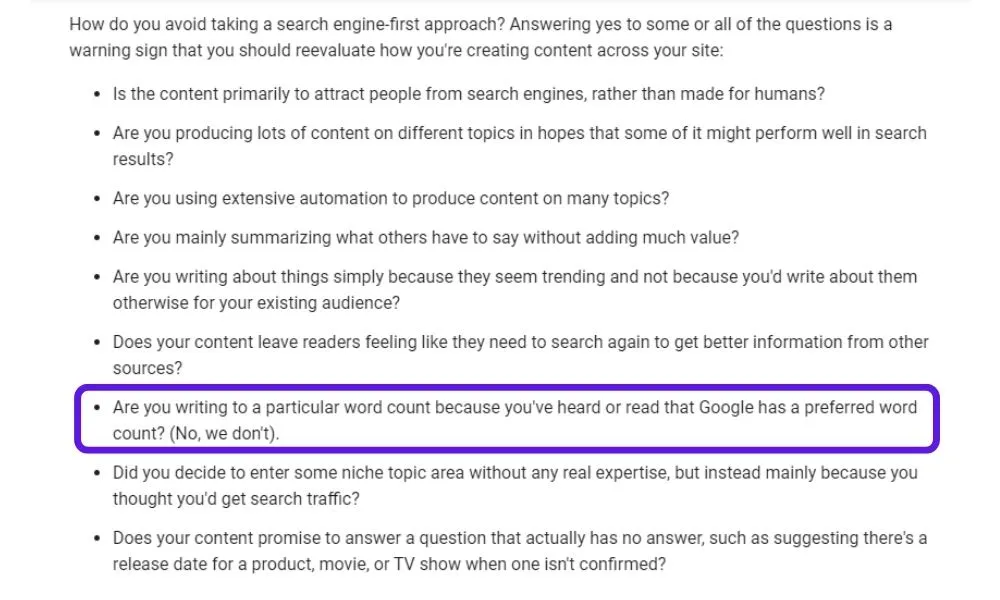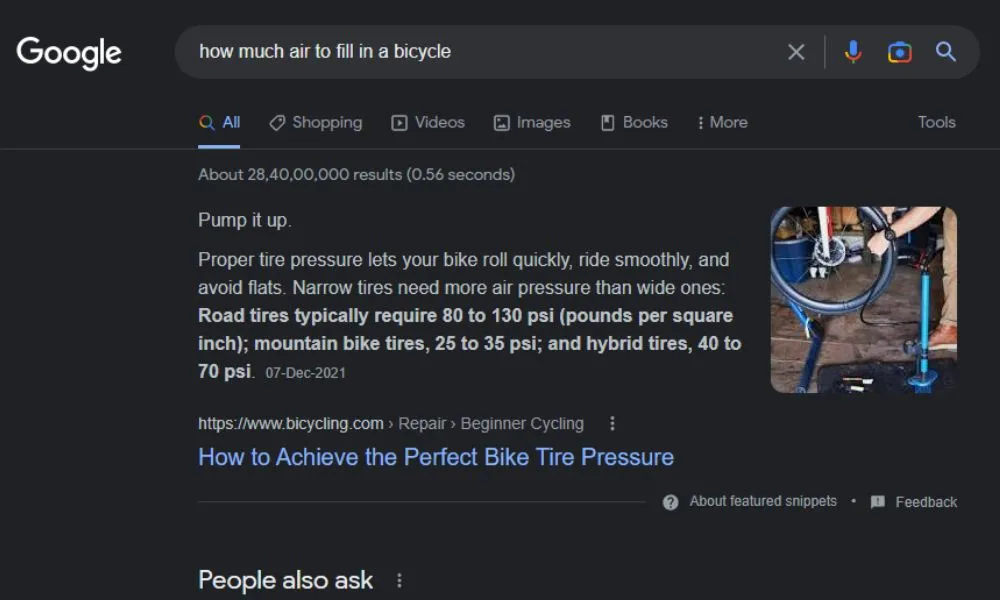Many SEOs and digital marketing gurus say that long-form or long content does better on search engines. This is true, but counting words while writing an article or post is not recommended.
Now talking about the long form of content, content can be extended if it has between 1000 words – 8000 words.

The august 2022 helpful content update clearly states that word count does not matter. So you don’t have to write up to a particular word limit.
I do not focus on word count while writing blog posts rather than providing complete information at once.
If you can deliver the information in 300 words rather than 2000 word blog post the do it.
Why should you avoid writing the long form of content?
The reason is simple today, no one wants to read long content unless they want to get detailed information. Today most people read blogs or search anything on the internet to get a quick answer.
Here is an example

As you can see in the above image, when I search for “how much air to fill in a bicycle,” the results come in snippets, and I got my answer. However, this is not good from the content creator’s point of view because they lose traffic when the answer appears as a snippet.
There are a few reasons why you should avoid writing lengthy content.
- It takes time to write long content. For example, a blog post of 600-800 words can easily be written in an hour, but a 2000-word post takes 2-3 hours because we have to do a lot of research.
- If the topic is not much deep and you are still practicing it, make it long by adding entirely wrong words.
- Long content does not add up any value also is not a ranking factor from an SEO point of view.
When to write long content on your blog?
You can write long content when you are writing about any:
- Review.
- Journals.
- Guides.
- Ebooks.
- Case studies.
You don’t need to write specific amount words. A review or guide can also be written under 800 words.


